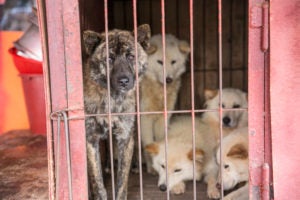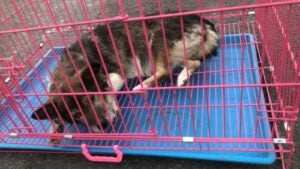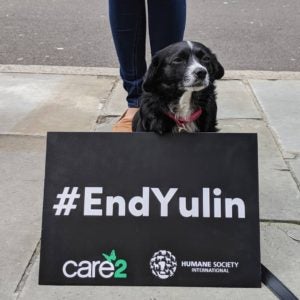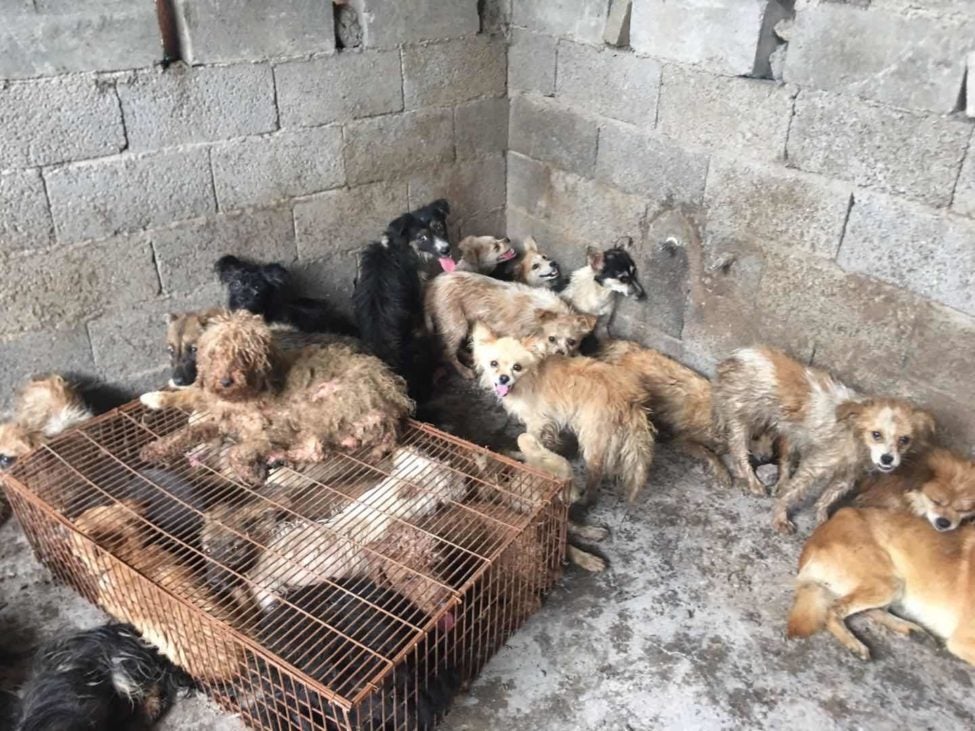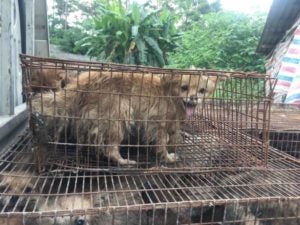
BEIJING– The city of Shenzhen could become the first in China to ban the eating of dog and cat meat, after a food safety legislative proposal has been drafted in response to the coronavirus outbreak. The proposed law focuses mainly on prohibiting the consumption of wildlife such as snakes, turtles and bats, and the inclusion of cats and dogs has been added specifically in acknowledgement of their status as companion animals rather than for any disease risk fears. The proposal has been welcomed by Humane Society International as having the potential to start a precedent in China to crack down on a trade that sees an estimated 10 million dogs and 4 million cats killed for meat annually.
Shenzhen’s legislators will await public responses to the proposed ban before turning it into law.
Peter Li, China policy expert for Humane Society International, said: “It would be extremely welcome for dog and cat meat consumption to be banned in Shenzhen, particularly because the proposal specifically recognises dogs and cats as companions who must be protected from this brutal and largely illegal trade, a sentiment that could have huge ramifications for the millions of dogs and cats who are stolen across China for human consumption.
Although the trade in Shenzhen is fairly small compared with the rest of the province, Shenzhen is still a huge city and is larger than Wuhan, so this would be very significant and could even have a domino effect with other cities following. Already in Yulin where the notorious dog meat festival is held, most dog slaughter operations have temporarily shut down in the last two months because no dogs are allowed to be transported across provincial boundaries. Although World Health Organisation advice is clear that dogs and cats pose no known coronavirus threat whatsoever, it’s no surprise that attention is turning to this trade at this time. The dog meat trade causes immense cruelty to our companion animals and poses a huge human health risk for other diseases such as rabies.”
Facts about China’s dog meat trade
- Thirty million dogs a year are killed across Asia for meat. There are estimated to be more than 91.49 million dogs and cats kept as pets in China. An estimated 10 million dogs a year are killed for China’s dog meat trade.
- The World Health Organisation warns that the dog trade spreads rabies and increases the risk of cholera.
- Most people in China don’t eat dogs, in fact dog meat is only eaten infrequently by less than 20% of the Chinese population. A 2017 survey revealed that even in Yulin, home of the notorious dog meat festival, most people (72%) don’t regularly eat dog meat despite efforts by dog meat traders to promote it. Nationwide across China, a 2016 survey conducted by Chinese polling company Horizon, and commissioned by Chinese group China Animal Welfare Association in collaboration with Humane Society International and Avaaz, found that most Chinese citizens (64%) want to see an end to the Yulin festival, more than half (51.7%) think the dog meat trade should be completely banned, and the majority (69.5%) have never eaten dog meat.
- Dog thieves snatch dogs and cats from the streets, as well as steal them from back yards.
- Dogs and cats are typically bludgeoned to death in front of each other, put in the de-hairing machine to remove fur, and the carcass blow-torched for sale to markets. Dog slaughter continues to occur in public places, exposing young children to horrendous brutality and potentially desensitizing China’s younger generations.
Download video and photos of China’s dog meat trade: https://newsroom.humanesociety.org/fetcher/index.php?searchMerlin=1&searchBrightcove=1&submitted=1&mw=d&q=YulinDogMeat0618
ENDS
Media contact: Wendy Higgins, whiggins@hsi.org


